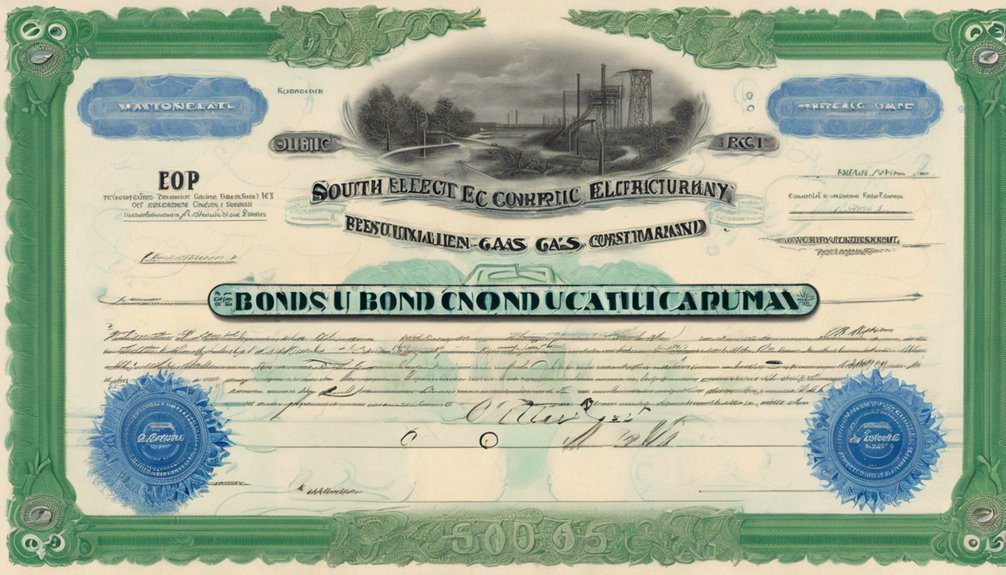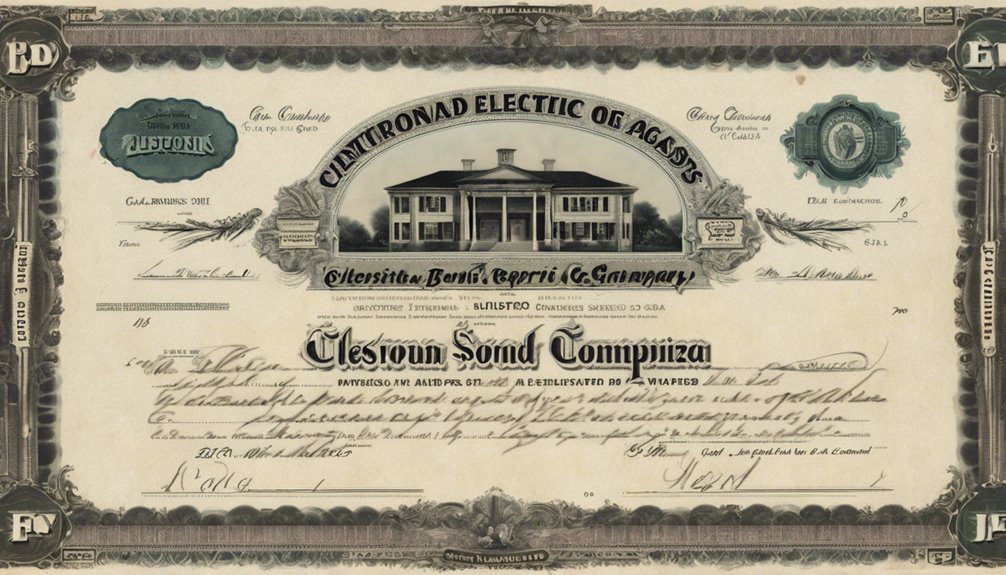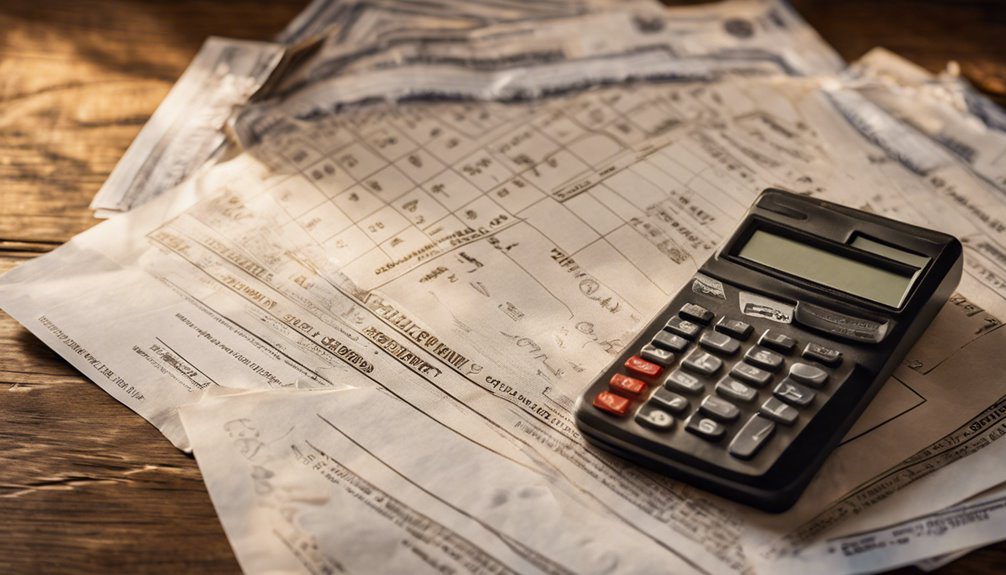If you're considering utility services from South Carolina Electric and Gas Company (SCE&G), you might want to learn about their utility deposit bond option. This financial tool can help you manage costs while securing essential services, especially if you're a renter or have a limited credit history. Understanding how this bond works and its benefits could change your approach to managing utility payments. But what do you need to keep in mind before committing?
What Is a Utility Deposit Bond?

A utility deposit bond is a financial guarantee that helps you secure services from a utility provider without having to pay a hefty upfront deposit. Instead of giving a large cash deposit, you'll pay a smaller fee to obtain this bond, which essentially acts as a promise to the utility company that you'll meet your payment obligations.
When you apply for a utility deposit bond, a surety company evaluates your creditworthiness. If you're approved, they issue the bond, allowing you to start receiving services while keeping more cash in your pocket.
If you fail to pay your utility bills, the utility provider can claim against the bond to recover the owed amount.
This arrangement benefits both you and the utility provider. You get immediate access to essential services without the burden of a large deposit, while the utility provider gains reassurance that they'll be compensated if you don't fulfill your payment responsibilities. Additionally, utility deposit bonds are often required for businesses with limited financial history, ensuring that they can still access necessary services.
Importance of Utility Deposit Bonds
Utility deposit bonds play a significant role in helping individuals manage their finances while accessing necessary utility services. When you move into a new home or apartment, utility companies often require a deposit to establish service. This can put a strain on your budget, especially if you're already facing other expenses.
By securing a utility deposit bond, you can avoid that hefty upfront payment. Instead, you pay a smaller premium for the bond, allowing you to allocate your funds more effectively.
Additionally, utility deposit bonds provide you with peace of mind. Knowing that you're covered in case of any unexpected issues with your utility services can ease your financial worries. This bond acts as a guarantee to the utility provider, ensuring they'll be compensated should you default on your payments.
If you maintain good payment habits, you may even receive a refund of your bond premium after a certain period.
Ultimately, utility deposit bonds streamline the process of establishing utility services while keeping your finances in check. They make it easier for you to transition into a new home without the burden of high deposits.
Who Needs a Utility Deposit Bond?

Anyone moving into a new residence or looking to establish utility services may find a utility deposit bond essential.
If you're a renter or a homeowner with a less-than-stellar credit history, you might be required to provide a utility deposit bond to secure your services. Utility companies often use these bonds to ensure they'll get paid for the services they provide.
You might also need a utility deposit bond if you're a new customer who hasn't established a payment history with the utility company. In such cases, the bond acts as a safety net for the provider, giving them confidence that you'll fulfill your financial obligations.
Additionally, businesses setting up utility accounts will often need to obtain a utility deposit bond, especially if they're in a sector that has a higher risk of default.
This bond helps protect utility companies from potential losses and ensures they can continue offering services without interruption.
How to Apply for a Bond
Applying for a utility deposit bond typically involves a straightforward process that can be completed in just a few steps.
First, gather the necessary documentation. You'll need personal identification, proof of residency, and any relevant financial information that demonstrates your reliability as a customer.
Next, reach out to South Carolina Electric and Gas Company (SCE&G) or a licensed bonding agency. They can provide you with specific requirements and application forms to get started.
Be prepared to fill out the application accurately, ensuring all details are correct to avoid delays.
Once you've submitted your application, you may need to wait for approval. SCE&G or the bonding agency will review your information and assess your eligibility for the bond.
If approved, you'll receive instructions on how to finalize your bond.
Costs Associated With the Bond

Understanding the costs associated with a utility deposit bond is crucial for budgeting your expenses. When you choose to secure a bond, you'll typically encounter several fees.
First, there's the premium you'll pay, which is a percentage of the bond amount. This premium varies based on factors like your credit score and the bond amount itself.
You might also face a one-time application fee when you apply for the bond. This fee can differ from one provider to another, so it's wise to shop around for the best rates.
Additionally, consider potential renewal fees if your bond needs to be extended beyond the initial term.
Don't forget to account for any upfront deposits you may need to make, as these can impact your overall budget.
Lastly, be aware of any administrative fees that can arise during the process.
Terms and Conditions Explained
When navigating the terms and conditions of a utility deposit bond, it's essential to grasp the specifics that govern your agreement.
First, you'll find that the bond typically requires you to pay a deposit, which acts as a security measure for the utility provider. This deposit amount can vary based on your credit history or previous utility service record.
Next, be aware of the duration of the bond. Usually, it remains in effect until you meet specific requirements, such as consistently paying your utility bills on time for a designated period.
Additionally, the terms may outline any fees or penalties for late payments, so it's crucial to familiarize yourself with these details.
You should also understand the process for claiming your bond. If you default on your utility payments, the provider may use the bond to cover your outstanding balance.
Finally, keep an eye on the renewal terms, as you may need to update your bond periodically based on changes in your service or creditworthiness.
Knowing these terms helps you manage your obligations effectively and maintain a positive relationship with your utility provider.
Impact on Your Utility Service

The impact of a utility deposit bond on your service can be significant, influencing both your account setup and ongoing relationship with the provider. When you opt for a deposit bond, it often streamlines your initial connection to the utility service. Instead of paying a hefty cash deposit, you secure your account with a bond, which might make the onboarding process quicker and less financially burdensome.
However, this bond doesn't just affect your setup; it also shapes how the utility views your account. If you maintain a good payment history, it could lead to favorable treatment, like the potential for waived fees or even a higher credit limit.
On the flip side, if you struggle to pay your bills, the utility may be less forgiving, as your bond reflects a level of risk they're willing to accept.
In essence, having a utility deposit bond can enhance your relationship with your provider, fostering trust and reliability. It's crucial to keep up with your payments and maintain open communication with the utility to ensure your service remains uninterrupted and your bond serves its purpose effectively.
Alternatives to Utility Deposit Bonds
If you're looking for alternatives to utility deposit bonds, several options can help you secure your service without the upfront cash commitment.
One viable choice is a letter of credit from your bank. This document essentially guarantees that your bank will cover your utility payments if you default, offering peace of mind to the utility company.
Another option is a guarantor. If you have a family member or friend with good credit, they could agree to vouch for you. Their promise to cover your bills can sometimes eliminate the need for a deposit altogether.
You might also consider payment plans. Some utility companies allow you to spread your deposit over a few months, making it more manageable. This way, you won't have to pay the entire amount upfront.
Lastly, look into programs that assist low-income customers. Various assistance programs can help you with deposits or even provide waivers based on your situation.
Tips for Managing Your Utility Payments

Managing your utility payments effectively can save you both money and stress. Start by setting a budget that includes all your utility expenses. This'll help you identify how much you can realistically allocate each month.
Consider automating your payments to ensure you never miss a due date, which can save you from late fees.
Next, keep track of your usage. Monitoring your electricity and gas consumption can reveal trends and help you make adjustments to reduce costs. If you notice a significant spike, investigate the cause and address any issues promptly.
Take advantage of any available discounts or assistance programs. Many utility companies offer programs for low-income households or energy-saving initiatives, which can provide significant savings.
Lastly, review your bills regularly. Look for discrepancies or charges you don't recognize, and address them immediately.
If you find consistent overages, it might be time to reconsider your provider or explore alternative energy solutions.
Contacting SCE&G for Assistance
When you need assistance with your SCE&G services, reaching out to their customer support can make a significant difference. You've got several options to get in touch and resolve any issues or questions you may have.
First, consider calling their customer service hotline. It's staffed with knowledgeable representatives who can guide you through your concerns, whether it's about billing, service interruptions, or account management.
If you prefer written communication, you can use their online chat feature or send an email. The website also offers a comprehensive FAQ section that may address your questions without the need to contact support directly.
For urgent matters, always opt for the phone; it usually gets you the fastest response. Make sure to have your account details handy to expedite the process.
Additionally, SCE&G's social media channels can be a quick way to reach out, especially for status updates or announcements.
Conclusion
In summary, a utility deposit bond from SCE&G is a smart way to secure your utility services without the burden of a hefty upfront deposit. It's especially helpful if you're a renter or have a lower credit score. By opting for a bond, you can manage your finances more effectively while ensuring access to essential services. If you have questions or need assistance, don't hesitate to reach out to SCE&G for support tailored to your needs.


